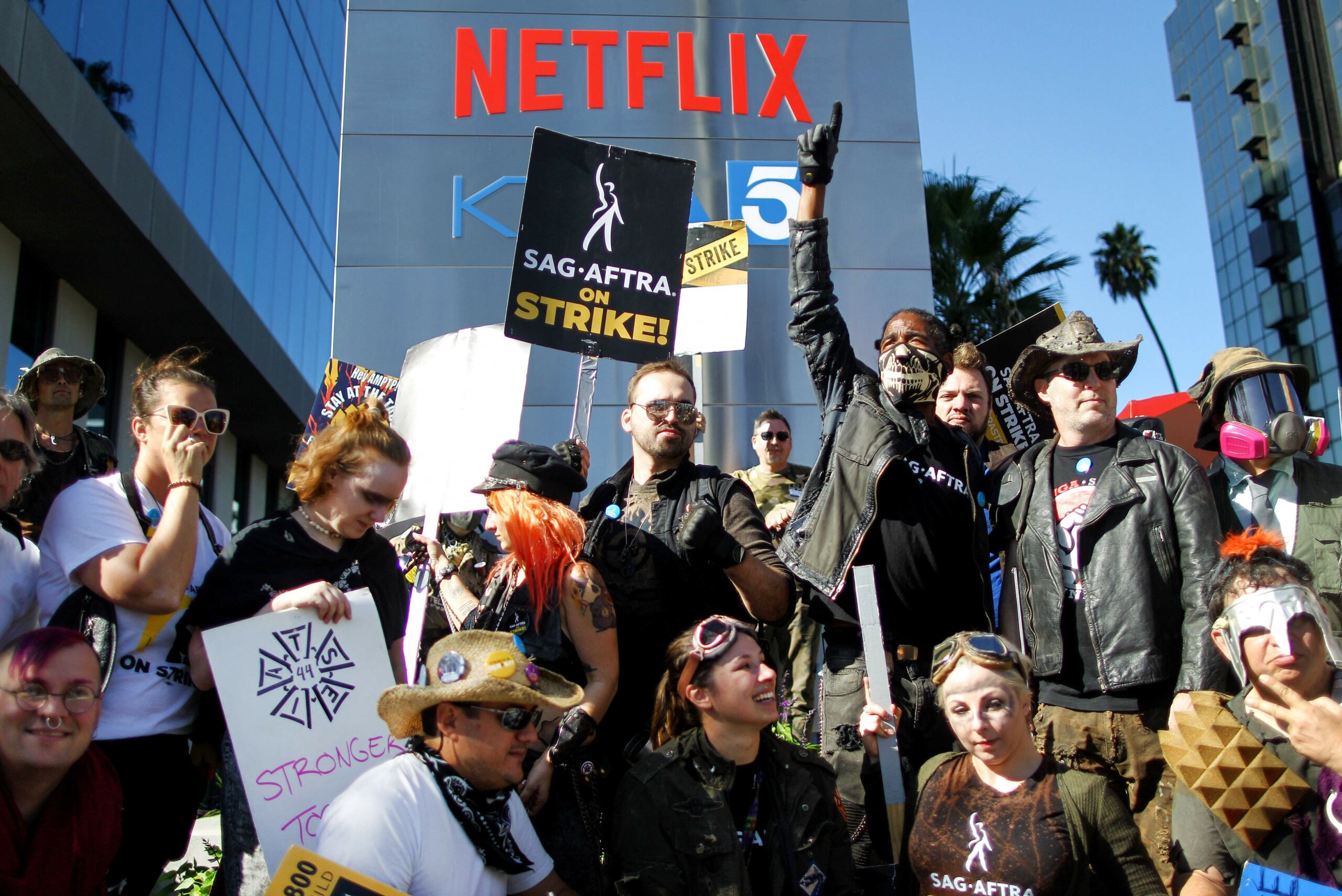LOS ANGELES (AFP) – Hollywood actors and studios reached a tentative deal Wednesday to end a months-long strike that has crippled the entertainment industry, delayed hundreds of popular shows and films, and cost billions to the US economy.
The Screen Actors Guild (SAG-AFTRA) called off its 118-day strike from midnight (0800 GMT Thursday) after finally reaching an agreement with the likes of Disney and Netflix for a new contract including higher pay, and protections against the use of artificial intelligence.
The announcement paves the way for actors to head back to movie sets, an end to picket lines outside studios, and a return to employment for thousands of other jobs linked to the entertainment industry.
“In a unanimous vote this afternoon, the SAG-AFTRA TV/Theatrical Committee approved a tentative agreement… bringing an end to the 118-day strike,” a spokeswoman said in a statement to AFP.

The deal still needs to be ratified by the union’s board, and members. That process could take weeks, but the agreement is widely expected to pass.
Talks between the two sides had taken place almost daily for the past two weeks, with CEOs of studios including Disney, Netflix, Warner, and Universal often attending personally, as the clamor for a deal grew.
Given the duration of the strike, studios already face gaping holes in their release schedules for next year and beyond. At the same time, many out-of-work actors have struggled to make ends meet, been forced to find second jobs, or quit the business altogether.
The news spread instantly across Hollywood, with celebrities expressing joy and relief.
“Incredible! I’m so happy we were all able to come to an agreement. Let’s get back to work! Let’s go! I’m so stoked,” Zac Efron told reporters at a premiere of “The Iron Claw.”
“PERSEVERANCE PAYS OFF!” wrote Oscar winner Jamie Lee Curtis on Instagram.
That is less than actors originally wanted but higher than writers obtained, and the biggest increase in decades.
An improved bonus structure for starring in hit shows or films was also eventually agreed upon.
The growth of streaming platforms, which typically pay minimal “residuals” when a hit show gets rewatched, has severely eroded actors’ incomes.
AI proved a major sticking point in the final stretch of negotiations, with talks often struggling to keep pace with the rapid technological advances.
Actors fear AI could be used to clone their voices and likenesses, and wanted stricter rules about the compensation and consent studios would need to obtain than the companies were willing to give.
Details of the deal will be published following a SAG-AFTRA board meeting to review the terms on Friday, the union said.
The Alliance of Motion Picture and Television Producers, which represents the studios, did not immediately respond to AFP request for comment.



















































